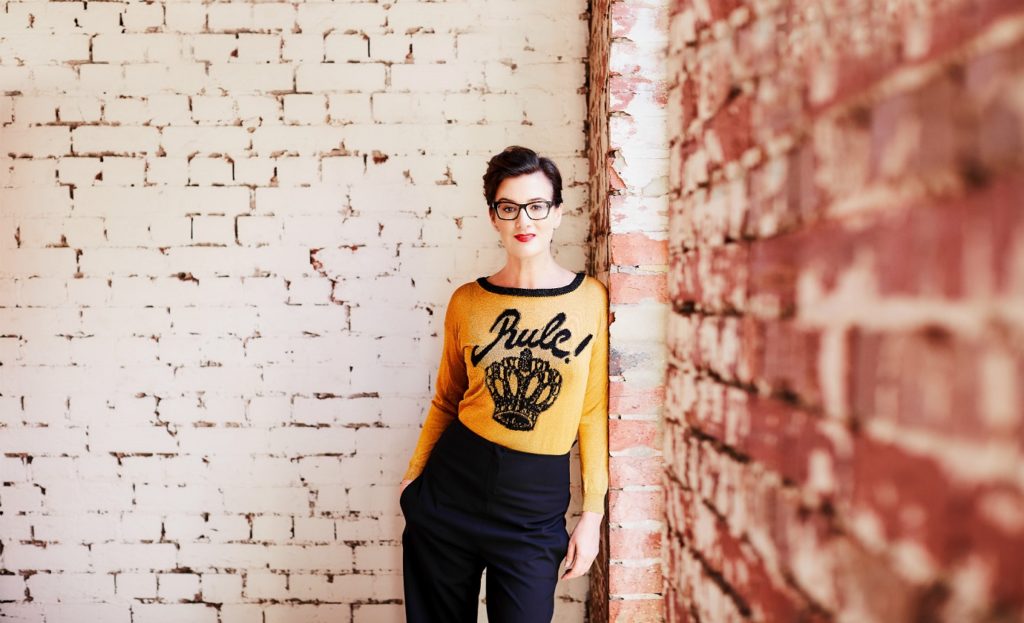You’ve been faking it, big time. You really have no idea what you are doing and it’s only a matter of time before someone comes up and taps you on the shoulder and quietly asks you to leave the room without making a scene.
Have you ever heard the above thoughts in your own head? Possibly as you’re about to speak up in a meeting, or walk into a conference room, or deliver that pitch?
I certainly have. It’s imposter syndrome and so many talented women suffer from it daily.
So where does it come from? In my case, it actually got worse after I became a mum, and I know I’m not alone.
Personally, I have been winging motherhood for over twenty years. Am I a good mum? Will my kids have friends? Am I present enough? Are they happy? Am I setting the right boundaries? Do other people think I’m a good mum? Am I a good mum? There is certainly plenty of evidence I can call on to bolster my self doubt. Let’s take what I fondly refer to as the emergency hospital years: across my (active) kids there were seven broken bones in all (one of my sons had three broken arms before the age of three). My kids are also literally stitched and glued together. On one memorable day I had two separate trips to the hospital first for my oldest, and then for my youngest, to have them both stitched up after different accidents. The triage nurses knew my name.
Add to that the fact that, unlike in your professional career where, while every Tom, Dick and Harry might have an opinion of your capability but are unlikely to voice it to you, it seems that with motherhood the gloves come off and everyone you have ever met (or not met…just think of that woman in the supermarket queue telling you how to control your overtired toddler who is prostrate on the floor), everyone has an opinion that they are more than happy to share.
Is it really any wonder that mums like me regularly contemplate whether we are actually any good at actually being a mum?
As a parent, it can be easy to second guess your capacity and it should come as no surprise that feelings of self-doubt start to creep into other aspects of our lives. And then we start to question our abilities professionally: Am I any good at this? Do I deserve to be in this role? Do I know enough? What if I am asked something I don’t know the answer to?
Self-doubt can be limiting when it comes to managing your ‘today’, but when it threatens your capacity to explore wonderful new opportunities ‘tomorrow’, then it can be seriously detrimental. No one ever said on their death bed: ‘I’m so happy that I left those opportunities on the table because I did not think I was good enough.’
My advice? Never lose site of the fact that every single one of us needs to wing it from time to time. I certainly do. But just because we might have a few less-than-entirely-authentic moments, does not mean that we are living a completely false existence.
It’s time to back yourself. You do know enough and you are good enough. If and when you are seized by imposter syndrome, remember these simple truths:
- This is not about being inauthentic, it’s actually about developing a new skill — the skill of backing yourself and your ability to get shit done on the run. Start saying Yes I can instead of No I can’t; start saying Yes I am instead of No I’m not.
- Imposter syndrome is a feeling, not a fact — get the data before you go too far down that rabbit hole. Make a list of all of your achievements, qualifications, wins big and small and genuinely reflect on them. Every time you start to doubt yourself, get your list out and read it.
- Talk to yourself the way you would talk to a daughter if she shared with you her feelings of inadequacy or self-doubt.
- When opportunities arise that you think you are unworthy of, remember that if you say No, someone else will be lining up (potentially someone less worthy than you) and they will have the guts to say Yes. They will jump and then build the parachute on the way down and you will look on and think, That could have been me. Stop coming second. It’s time to be first.
Also it helps to know that one day, when you’re older, you will realise that you actually have been good enough all along; that you do know what you are talking about; that you are an expert or specialist in your field; that you do add value; that you don’t need validation from anyone else to make this so; and that there is nothing to fear. So why not own it now?
Edited excerpt with permission of the publisher, Wiley, from Me First: The Guilt-free Guide to Prioritising You, by Kate Christie. Copyright (c) 2020 by John Wiley & Sons Australia, LTD. All rights reserved. This book is available wherever books and ebooks are sold.

